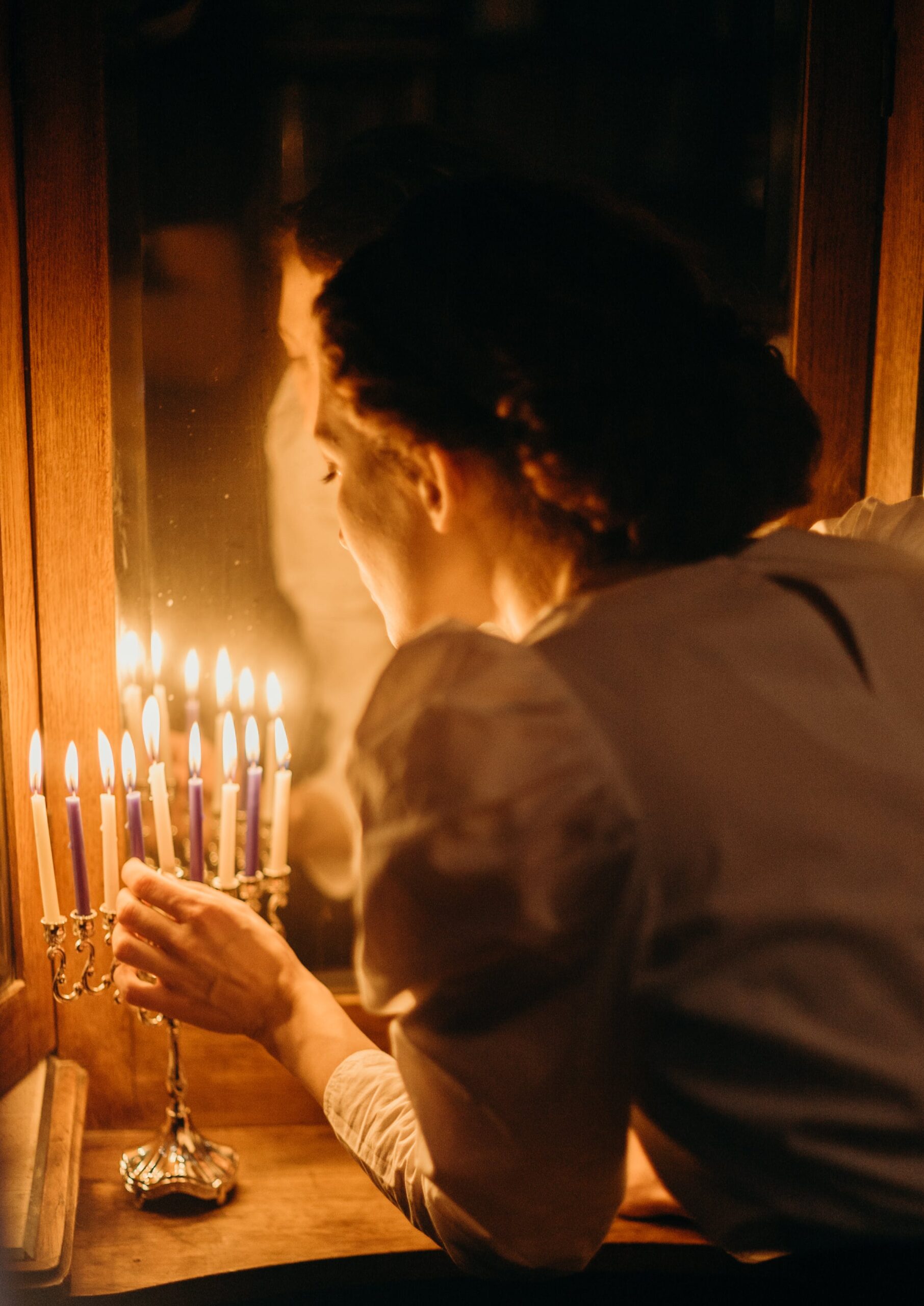In the previous part, we talked about the prerequisites and the beginning of the time of revival when the Jewish people returned from Babylonian captivity. In this section, we will highlight some of the important features of this revival and more specifically the revivals of the Persian Empire.
1. Trusting God based on His past actions
In Ezra chapter 8 we read the following: “Then I proclaimed a fast there at the river of Ahava, that we might humble ourselves before our God, to seek from Him the right way for us and our little ones and all our possessions… So we fasted and entreated our God for this, and He answered our prayer..” (Ezra 8:21-23).
As the revival progresses, when the next wave comes after the first wave, people who already know how God worked in the previous waves of revival will begin to trust God more and more. They begin to understand more and more that it was the Lord who arranged favorable external circumstances, turned the king’s heart towards them, raised up people who also rushed towards His will, His plan and provided everything necessary.
For example, we can reach out to influential people for help and they will respond to us. But it is much more important to trust in God Himself. We have already seen Him work, we have seen His Spirit come upon our predecessors. Let’s look at examples from Scripture and history. We are inspired by the way God has worked in our lives. And so, before some new stage of awakening, we can fall before His throne of mercy, we can fast, we can pray, we can gather in retreats completely dedicated to God and allow Him to act as He wants, even if it may be shocking to someone. The point is that His grace really enables us to do what He calls us to do and provides us with both inner and outer protection.
In our war conditions, this example is, in my opinion, very important. We can hope that the Lord, who has done so much for us both in previous years and in the previous months of this difficult war, will act no less powerfully and protect all His children. It is only important that they follow Him, according to His will, along His path and even if that path seems dangerous, His angels fight for us and we fight this spiritual war with Him. And He, the Lord of hosts, Adonai of hosts, has already won.
Their hope in God was justified: they arrived safely and with all their possessions and jewelry in Jerusalem in Judea to rebuild the temple. They did everything and opened the next stage of awakening.
2. In all these waves there was necessarily a phase of restoration of fear of God
As we said earlier, every true revival has and must be accompanied by the restoration of proper worship, sacrifices (in our understanding, offerings) according to God’s plan, reverent worship and Biblical feasts.
3. Separation from the impurities of the Gentiles
We know that during the first wave of revival after the return from Babylon, under the leadership of God’s prophets, David and the descendants of God’s high priest, when the Gentiles wanted to participate in the restoration of the temple, they were forbidden because it was only the work of God’s children who were faithful to God. And then in the time of Ezra and Nehemiah it was necessary to separate from everything pagan. In our context, it works differently. But it is impossible to imagine true revival without the sanctification of God’s people.
4. None of these revivals were accompanied by rebellion against existing authorities
5. It was during these revivals that the last prophets of the Old Testament were active
We are talking about the authors of the last three books of the Tanakh (O.T.): Zechariah, Haggai and Malachi. All of them operated in the land of Israel. It is strange that although most of the Jews lived in Babylon under the Persian kings, yet we do not see a single prophet there. All of God’s prophets arose in the land of Israel and all of them were connected to the temple or Jerusalem in one way or another.
5.1. The main task of prophets at this time
In fact, the primary ministry of these prophets took place in Jerusalem and it was largely to ensure that God’s people did not lose focus. This was a remnant of God’s people, but even they quickly lost their spiritual focus. Their life was, of course, much harder than in the centers of civilization from which they left: poverty, a devastated country, opposition from the surrounding pagans and other troubles began to disturb them. And the prophets returned them to the main thing they came back for.
This shows once again that the real and great revivals will be accompanied by the restoration of the prophetic ministry. If God gives, we will see it soon, because some of the revivals became possible thanks to the ministry of the prophets. It is enough to read the books of these prophets to see that after their prophetic reproofs and encouragement that God put in their mouths, God’s people woke up and began to act again according to God’s plan.
We have that too and we must pray for the restoration of a true prophetic ministry, without which the true revival, when it begins, may quickly suffocate or remain too shallow to touch the depths of God’s people and even if it touches, it may remain as it were isolated and not spread to the broad strata of the people.
This is a very important lesson. I think we clearly do not have enough prayers for the restoration of the prophetic ministry, for God to raise up His prophets, to purify those to whom He entrusted the prophetic ministry, to sanctify and gather them to the purposes He gave them. Of course, this does not apply only to prophets, but to all servants of God, regardless of what gifts they have.
5.2. Prophecies not only about today
There is another important point in the service of these prophets. All of them were given not only prophecies relevant to their time, but also great prophecies of the future, especially of end-time revivals (in the land of Israel and throughout the world), from the first coming of the Messiah to the millennial kingdom after His return.
It turns out that if God’s prophets are in the right place and at the right time and do what the Lord gives them to do, despite external and internal obstacles and opposition from their people and authorities, then God will raise them to the next level and open a distant future for them.
6. Awakening of the minorities which affected the majority
In each of these cases, the revival was not just about the remnant of Israel, although it seems that only a small remnant participated. But the revival became decisive for all God’s people. This is the most important lesson for all of us. If this minority of God’s people had waited for the rest of the powerful part of Israel to join them and had hesitated to take responsibility for the whole nation (remember Daniel who started the revival), then there would have been no revival, no temple, no Jerusalem and no Judea.
But this awakening defined the history of all Israel and, to a large extent, all of humanity. But its description became part of the Bible, the completion of the Tanakh (O.T). Without these revivals, the Body of Messiah, His ministry and the salvation of all mankind would not have been revealed. Friends, can you imagine what a minority can do! This is if, firstly, this minority does not follow the evil of the majority and secondly, they follow the Messiah wherever He leads them.
Boris Grisenko, Rabbi of KEMO (Kyiv Messianic Congregation).
Based on the materials of the seminar “Awakenings in the Second Temple Period“.








